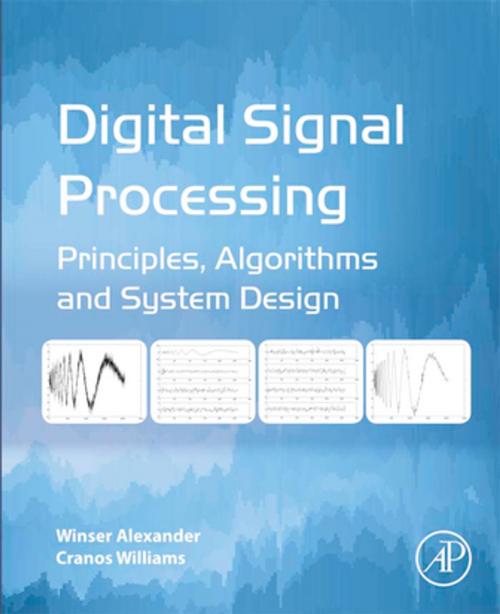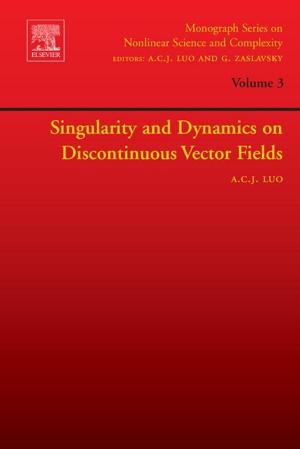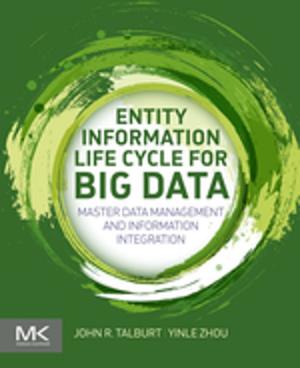Digital Signal Processing
Principles, Algorithms and System Design
Nonfiction, Science & Nature, Science, Physics, Electromagnetism, Technology, Engineering, Computers, General Computing| Author: | Winser Alexander, Cranos M Williams | ISBN: | 9780080885261 |
| Publisher: | Elsevier Science | Publication: | November 14, 2016 |
| Imprint: | Academic Press | Language: | English |
| Author: | Winser Alexander, Cranos M Williams |
| ISBN: | 9780080885261 |
| Publisher: | Elsevier Science |
| Publication: | November 14, 2016 |
| Imprint: | Academic Press |
| Language: | English |
Digital signal processing (DSP) has been applied to a very wide range of applications. This includes voice processing, image processing, digital communications, the transfer of data over the internet, image and data compression, etc. Engineers who develop DSP applications today, and in the future, will need to address many implementation issues including mapping algorithms to computational structures, computational efficiency, power dissipation, the effects of finite precision arithmetic, throughput and hardware implementation. It is not practical to cover all of these in a single text. However, this text emphasizes the practical implementation of DSP algorithms as well as the fundamental theories and analytical procedures that form the basis for modern DSP applications.
Digital Signal Processing: Principles, Algorithms and System Designprovides an introduction to the principals of digital signal processing along with a balanced analytical and practical treatment of algorithms and applications for digital signal processing. It is intended to serve as a suitable text for a one semester junior or senior level undergraduate course. It is also intended for use in a following one semester first-year graduate level course in digital signal processing. It may also be used as a reference by professionals involved in the design of embedded computer systems, application specific integrated circuits or special purpose computer systems for digital signal processing, multimedia, communications, or image processing.
- Covers fundamental theories and analytical procedures that form the basis of modern DSP
- Shows practical implementation of DSP in software and hardware
- Includes Matlab for design and implementation of signal processing algorithms and related discrete time systems
- Bridges the gap between reference texts and the knowledge needed to implement DSP applications in software or hardware
Digital signal processing (DSP) has been applied to a very wide range of applications. This includes voice processing, image processing, digital communications, the transfer of data over the internet, image and data compression, etc. Engineers who develop DSP applications today, and in the future, will need to address many implementation issues including mapping algorithms to computational structures, computational efficiency, power dissipation, the effects of finite precision arithmetic, throughput and hardware implementation. It is not practical to cover all of these in a single text. However, this text emphasizes the practical implementation of DSP algorithms as well as the fundamental theories and analytical procedures that form the basis for modern DSP applications.
Digital Signal Processing: Principles, Algorithms and System Designprovides an introduction to the principals of digital signal processing along with a balanced analytical and practical treatment of algorithms and applications for digital signal processing. It is intended to serve as a suitable text for a one semester junior or senior level undergraduate course. It is also intended for use in a following one semester first-year graduate level course in digital signal processing. It may also be used as a reference by professionals involved in the design of embedded computer systems, application specific integrated circuits or special purpose computer systems for digital signal processing, multimedia, communications, or image processing.
- Covers fundamental theories and analytical procedures that form the basis of modern DSP
- Shows practical implementation of DSP in software and hardware
- Includes Matlab for design and implementation of signal processing algorithms and related discrete time systems
- Bridges the gap between reference texts and the knowledge needed to implement DSP applications in software or hardware















